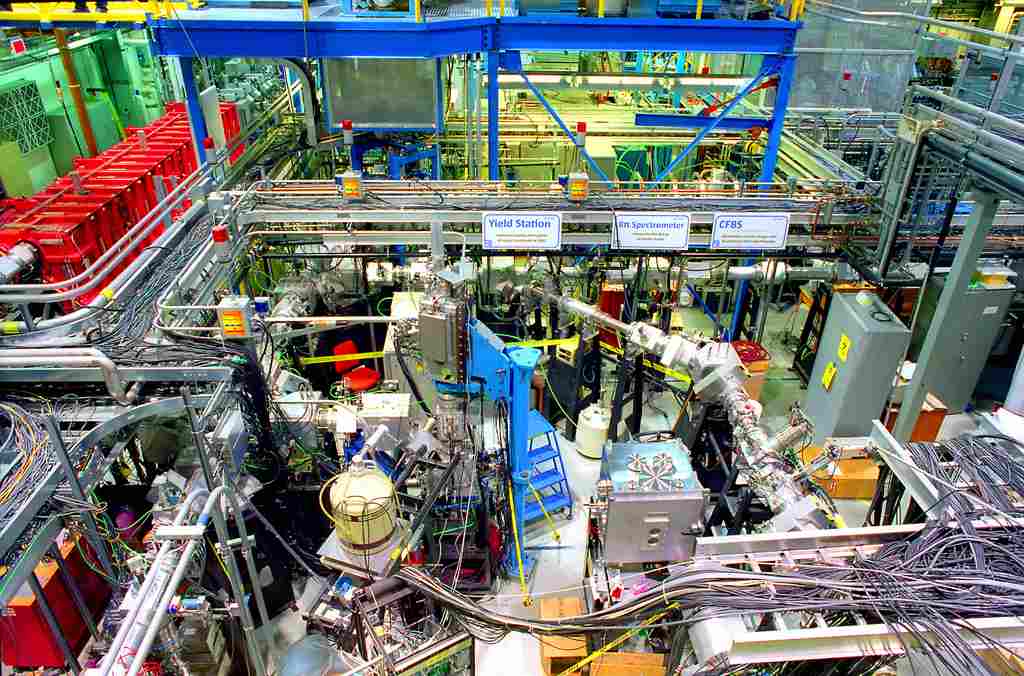TRIUMF Helps 3,000 Scientists Unlock Secrets of Universe
With converged architecture built on DDN storage and embedded dCache
This is a Press Release edited by StorageNewsletter.com on April 2, 2015 at 3:12 pmTRIUMF, a subatomic physics laboratories and Canada’s national laboratory, is using DDN Storage SFA performance engine in combination with dCache, a data distribution service, to help 3,000 scientists at 177 institutions across 38 countries collaborate on major scientific discoveries as part of the ATLAS experiment at the Large Hadron Collider (LHC).
As an ATLAS tier-1 data centre, TRIUMF stores, processes and distributes around the clock massive amounts of data generated by the experiment. Located at CERN, the European organization for nuclear research, the ATLAS experiment played a major role in the most important particle physics breakthrough to date – the discovery of the Higgs boson, a fundamental ingredient to the building blocks that constitute the universe.
With storage performance a critical requirement especially at petabyte level, TRIUMF sought a storage system with density, reliability and efficiency that would speed up storage and processing. The organization also wanted to increase collaboration by enabling sending and receiving of large files with other ATLAS sites.
Using DDN SFA 12KXE with embedded dCache, TRIUMF consolidated both storage and data distribution within a converged architecture to deliver unlimited and data access and sharing between nine other tier-1 and 70 tier-2 sites while minimizing access latency.
Thanks to DDN’s density, running TRIUMF’s storage infrastructure costs less than before; the organization went from 21 4U servers requiring multiple racks to one DDN SFA system with 1.6PB running eight dCache virtual nodes in half a rack. Savings in data center space, power and cooling costs also have been realized.
DDN Streamlines Scientific Data Distribution to Increase Global Research Collaboration
- DDN’s In-Storage Processing feature enabled TRIUMF to embed dCache within the storage controller, consolidating both its storage processing and data distribution requirements in one system, with simple, single pane of glass management.
- DDN enables TRIUMF to handle high level of intensive data processing and simulations in support of the biggest experiment of the century.
- DDN’s scalable, high-capacity storage was suited for accommodating TRIUMF’s storage growth, which expanded by at least one order of magnitude at each refresh cycle.
- In addition to data resiliency, DDN capabilities, including DirectProtect and Data-At-Rest Encryption, enabled TRIUMF to meet availability requirements.
Reda Tafirout, research scientist, TRIUMF and director of operations, ATLAS tier-1 data centre in Canada, said: “We have used DDN for many years as a trusted provider. TRIUMF cannot afford any downtime while the ATLAS experiment is running and collecting data, so providing our storage services with the highest performance and reliability, while being fault tolerant against data corruption is extremely important and critical to our operations.
“With DDN, we have no problem accommodating close to 5,000 data hungry cores hammering on our storage at the tier-1 centre. Moreover, there are several hundred clients from all over the world accessing our data around the clock.
“Running TRIUMF’s storage infrastructure costs less than before. We went from 21 4U servers requiring multiple racks to one DDN SFA system with eight virtual dCache nodes in about half a rack; power went from 25 to less than 7 kilowatts in addition to major cost savings on cooling.
“We made the right decision when we chose DDN to take TRIUMF to the next level of expansion. Having more powerful storage performance with higher density, reliability and performance will help us grow in place while keeping up with new use cases and increased demands for global scientific collaborations.“











 Subscribe to our free daily newsletter
Subscribe to our free daily newsletter


